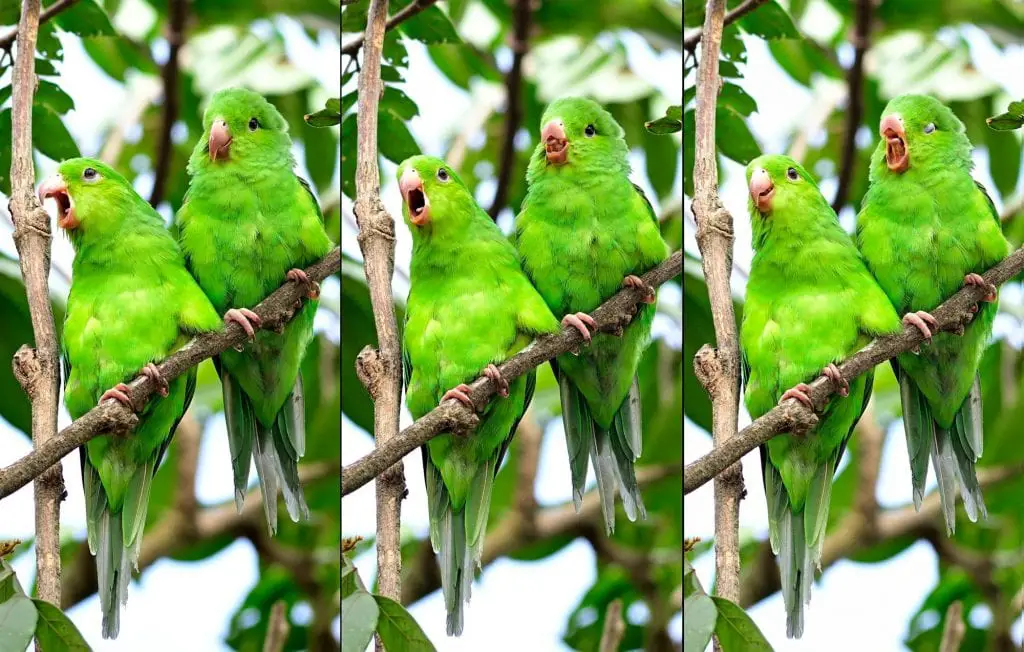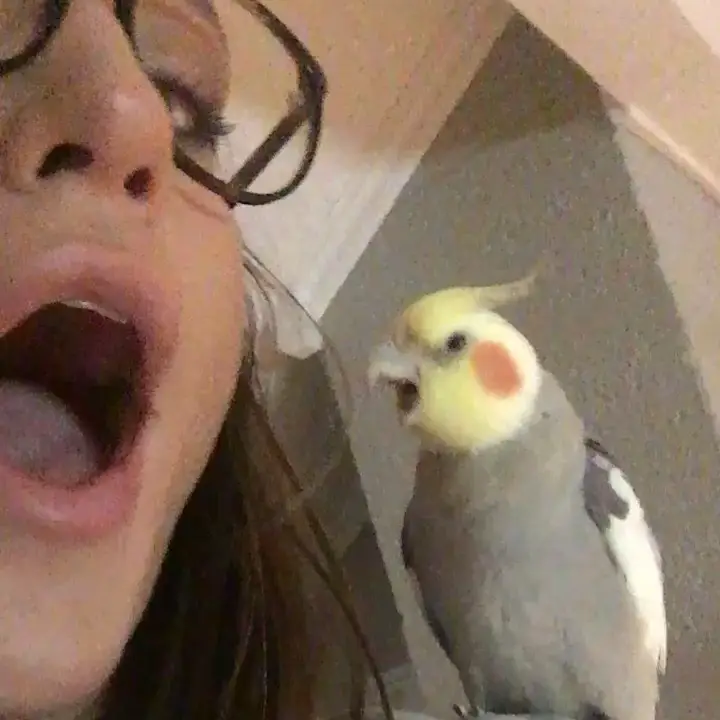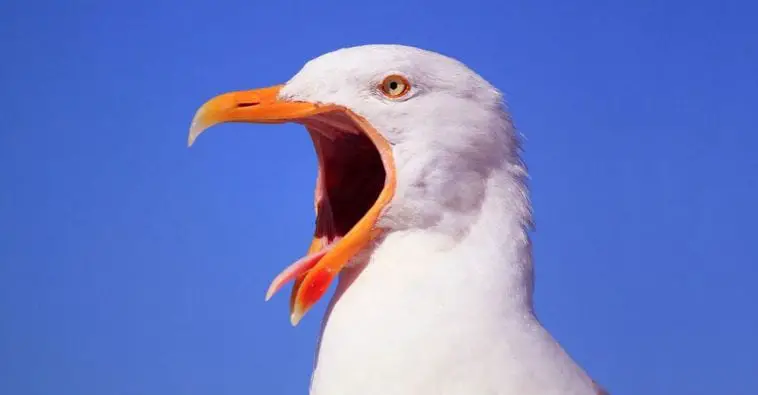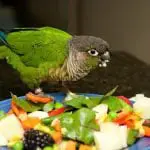It is surprising to know that like humans, birds yawn as well. Researchers propose that almost all animals have spine yawns. Yawning is just a natural phenomenon in birds, but there are still instances where yawning becomes disastrous. There are different reasons why birds yawn; that is why it is important to distinguish a normal yawn from a yawn brought by a certain disease or illnesses and irritabilities.
A yawn is a reflex consisting of the simultaneous inhalation of air and the stretching of the eardrums, followed by an exhalation of breath. Bird species are not only smart, but they are competitive as well. There are possible reasons why birds yawn, but experts do not actually have an exact reason about the biological truth about yawning.
Yawning is evident in almost all species; that is why there is still ongoing research about the reason behind yawning for each and every species. Most researchers propose that yawning lies in the most complex body system, which is the brain that has control for the different functioning of the body, whether it is for humans or animals.
What Does Yawning Mean to Birds
· Itching throat
Yawning may soothe an itchy throat. When the bird’s yawn, it could mean that your bird’s throat is irritated due to foreign particles that triggered the itchiness. Yawning is a way for them to somehow scratch the itchy part of their throat to feel relieved. The itchiness won’t go away with just one yawning; that is why when you see them yawn a couple of times, it means that something is bothering them.
· Sleepy
Like what yawning means to humans, birds yawn because they are sleepy. They yawn to increase the oxygen level in their brains to ease the sleepiness. Research shows that yawning for birds is associated with stress, fatigue, and boredom. It is a way for them to express that they already need alone time to rest.
· Preening
Birds used to do preening, or a process wherein they groom their feathers using their beaks. If you see them yawn after preening, there is a possibility that they are just fixing their crop back in place. This is just a part of their grooming process.
· Something is stuck
When you notice that your bird is excessive yawning, there is a possibility that something is stuck in its mouth, whether a seed or dust particles. Yawning is a way for them to exert effort to dislodge what’s blocking on their throat or mouth. They open their mouths as wide as they can to somehow slide down what sticks in their throat. You can detect that something sticks in their throat if they yawn while eating. Giving them water is an immediate remedy if yawning does not work.
· Happiness
Yawning is a way for your bird to express what they feel. Aside from sleepiness, boredom, and stress, they can also express happiness by means of yawning. During playtime with your bird and you noticed that it is yawning, it means that it is their reciprocal response to the kindness and attention that you are giving them. Yawning is also a way for them to show their comfortability with their owners.
· Respiratory Illness
When your bird suffers from respiratory illnesses, your bird feels irritations, and sometimes it is accompanied by shortness of breath. If you notice that yawning irritates them, especially if it is an excessive yawn, take them immediately to the veterinarian because there is a possibility that your bird is experiencing respiratory illnesses.
· Thermoregulation
There is also a theory that states that when a bird yawns, it is a thermoregulatory activity where they remove the excess heat from their bodies. Bathing helps them release the heat that they feel in their bodies, but when the temperature increases, the immediate way for them to regulate their body temperature is through yawning. Yawning is a way to bring back homeostasis.
· Defense Mechanism
In the wild, yawning can serve as a defense mechanism, especially if a predator comes around. The bird will yawn to show its predator that it has sharp teeth. Yawning is also a way for them to alert their flock about the possible harm that they will face.
· Exercise
There is also a proposal that states that the reason why a bird yawn is because it is their way to exercise their jaw and lungs by means of flex action, especially during their periods of inactivity. Yawning of birds is somehow related to stretching of arms and neck of humans to relax. Yawning is an indication of inactivity; that is why it is a way to flex their bodies, specifically the head area.
· Controlling the brain temperature
There is also another proposed reason why birds yawn is because it is their body’s way of controlling the brain temperature; when a mammal yawns, it cools the brain to operate smoothly. There is a proposal that yawning increases the oxygen level in the brain to thermoregulate the overheated brains, especially warm temperatures. When your bird yawns, there is an exchange of air that passes through in and out of the brain.
· Mimicry
A bird yawns because of mimicry. Yawning is contagious to birds as well. There were experiments conducted to support this claim. A bird most likely yawns if a bird or even a human that yawns in front of him has form special bonds with him. Yawning is contagious, and it may be a product of quality inherent among social animals, which is the essence of empathy or the ability to understand other species’ emotions.
Is Yawning For Birds Contagious to Other Birds?

When a person yawns, there is a possibility that the person who saw you yawn will yawn as well. Research shows that this is a phenomenon also happens to birds. When a bird suddenly yawns when it sees another bird, yawning is not just an involuntary movement, but this is actually a primitive form of expressing empathy or known as the emotional contagion or state matching. It may not be an exact act of empathy but their body’s reflexes to yawn involuntarily when they see another bird yawns clearly show their ability to mimic other’s actions and synchronize with them, especially when they are in the flock.
Is Yawning for Humans Contagious to Birds?

There are studies conducted wherein an animal, specifically a domesticated dog, cat, or bird that sees human yawning, has a high possibility that they’ll simulate or imitates the lip action of a yawning human. Experts suggest that yawning is not only an involuntary action, but it is a form of showing empathy. The birds are the usual thing for experiments for contagious yawning because they are known to have a certain emphatic response. If empathy is a big factor for yawning, there are high chances that when a bird owner yawns in front of the bird, the bird yawns as well because if the bond that it has for its owner.
Final Thoughts
Yawning is considered as a physiological behavior that is a result of multiple behaviors in thermoregulation, sleepiness, ear pressure, respiratory system, and circulatory system functioning of birds. As long as yawning does not impose negative connotations on the bird’s health, then it is just a normal thing.


